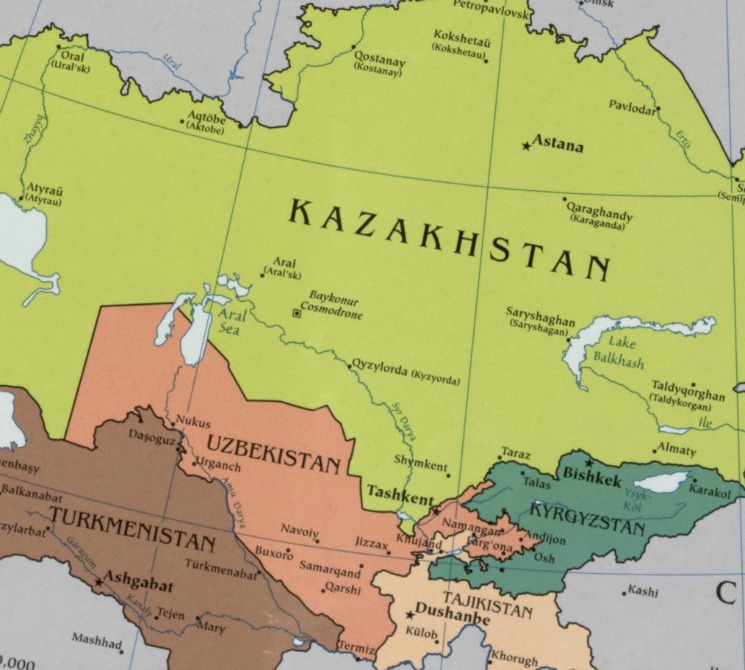Kazakhstan

BRIEFING—The Impact on Central Asia of Russia’s War ...
Sep 04, 2025Rayburn House Office Building 2200 Stream live here Russia’s war on Ukraine has had a significant impact on the countries of Central Asia, including shifting their relationships with Russia and […]

The Impact on Central Asia of Russia’s War on Ukrain...
Sep 04, 2025Russia’s war on Ukraine has had a significant impact on the countries of Central Asia, including shifting their relationships with Russia and China and reshaping their internal political and economic […]

Helsinki Commission Advances Human Rights, Demands f...
Oct 19, 2023By Shannon Simrell, Senior Policy Advisor Between October 2-13, 11 Helsinki Commission staff joined approximately 1,400 representatives of OSCE participating States (pS) and civil society representatives in Warsaw, Poland in […]

Helsinki Commission Digital Digest January 2022
Jan 31, 2022Russia sent troops near Ukraine and to Kazakhstan. T...
Jan 08, 2022Transcript SCOTT SIMON, HOST: The Biden administration is heading into an intense week with Russia. The U.S. has already condemned the massing of tens of thousands of Russian troops […]
Helsinki Commission Calls for Peaceful Solution in K...
Jan 06, 2022WASHINGTON—In response to the violent clashes between protesters and authorities in Kazakhstan, Helsinki Commission Chairman Sen. Ben Cardin (MD), Co-Chairman Rep. Steve Cohen (TN-09), Ranking Member Sen. Roger Wicker (MS), […]
Co-Chairman Cohen, Ranking Member Wilson Introduce T...
Jul 30, 2021WASHINGTON—Helsinki Commission Co-Chairman Rep. Steve Cohen (TN-09) and Ranking Member Rep. Joe Wilson (SC-02) yesterday introduced the Transnational Repression Accountability and Prevention (TRAP) Act in the U.S. House of Representatives. […]
OSCE SHDM on Digital Technology and Human Rights
Jul 26, 2021OSCE Conference on Risks and Opportunities Posed by Digital Technologies On July 12 and 13, 2021, the OSCE Office for Democratic Institutions and Human Rights (ODIHR) held the third Supplementary […]
Sweden’s Leadership of the OSCE
Jun 11, 2021In 2021, Sweden chairs the world’s largest regional security organization—the Organization for Security and Cooperation in Europe (OSCE)—which comprises 57 participating States stretching from North America, across Europe, and to […]
COVID-19 Vaccination Rollouts Expose Underlying Ineq...
Jun 07, 2021By Michelle Ngirbabul, Max Kampelman Fellow, and Shannon Simrell, Representative of the Helsinki Commission to the U.S. Mission to the OSCE More than one year into the COVID-19 pandemic, over […]
Swedish Foreign Minister Ann Linde to Appear at Hels...
Jun 03, 2021WASHINGTON—The Commission on Security and Cooperation in Europe, also known as the Helsinki Commission, today announced the following online hearing: SWEDEN’S LEADERSHIP OF THE OSCE Priorities for 2021 Friday, June […]

Helsinki Commission Commemorates 45 Years of Advanci...
Jun 03, 2021WASHINGTON—To commemorate the 45th anniversary of the Commission on Security and Cooperation in Europe, also known as the U.S. Helsinki Commission, on June 3, Chairman Sen. Ben Cardin (MD) and […]
